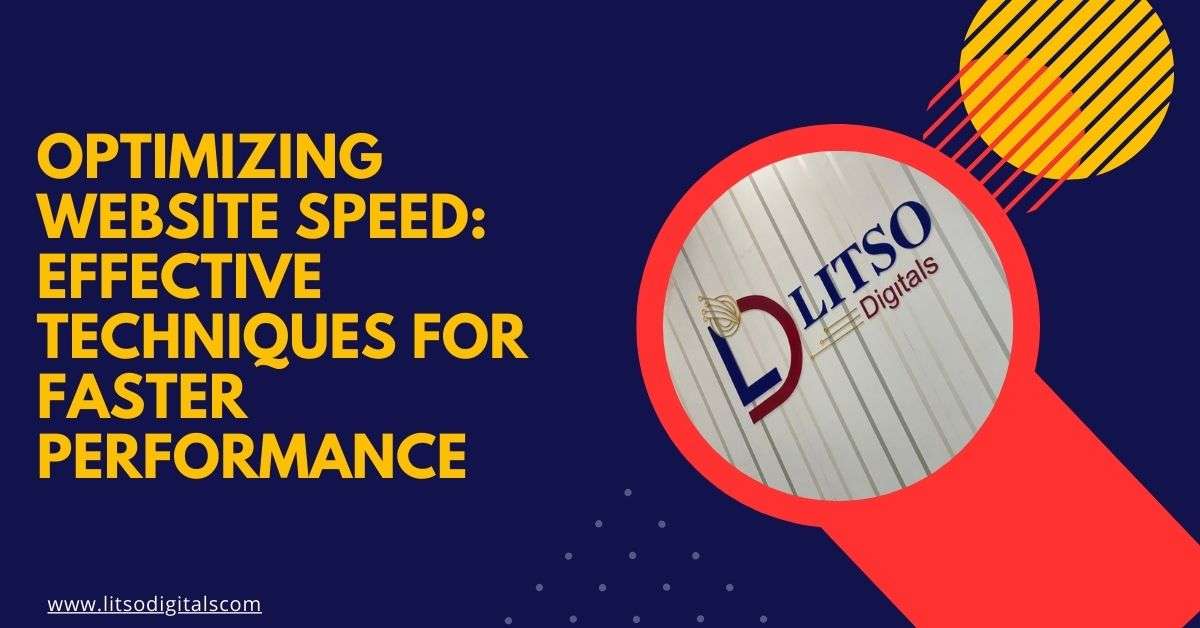In today’s digital era, where attention spans are short and competition is fierce, the speed of your website can make or break its success. Users expect instantaneous responses, and search engines reward faster-loading websites with higher rankings. In this article, we will explore the intricacies of website speed optimization and unveil effective techniques to enhance your site’s performance.
Introduction
Importance of Website Speed
In the fast-paced online world, users demand quick access to information. Website speed is not just a technical detail; it directly impacts user satisfaction and engagement.
Impact on User Experience and SEO
Beyond user satisfaction, website speed is a crucial factor influencing search engine rankings. Search engines, such as Google, consider page speed as a ranking factor, making it essential for SEO success.
Understanding Website Speed
Factors affecting Speed
Various factors contribute to a website’s speed, including server performance, file sizes, and code efficiency.
Key Metrics: TTFB, Page Load Time
To gauge your website’s speed, you must understand metrics like Time to First Byte (TTFB) and overall Page Load Time.
Why Optimize Website Speed?
Improved User Experience
A faster website enhances user experience by reducing bounce rates and increasing user engagement.
SEO Ranking Factors
Search engines prioritize fast-loading websites, leading to improved search engine rankings.
Effective Techniques for Faster Performance
Image Optimization
Optimizing images reduces file sizes without compromising quality, enhancing page load speed.
Minimizing HTTP Requests
Reducing the number of HTTP requests streamlines data retrieval, speeding up page loading.
Browser Caching
Utilizing browser caching allows frequently accessed resources to load faster on subsequent visits.
Content Delivery Network (CDN) Integration
A CDN distributes website content across servers globally, reducing latency and boosting speed.
Code Compression
Compressing code files decreases load times, positively impacting website speed.
Mobile Optimization
Responsive Design
Adopting responsive design ensures optimal performance on various devices.
AMP (Accelerated Mobile Pages)
Implementing AMP accelerates mobile page loading, catering to the growing mobile user base.
Server Optimization
Quality Hosting
Choosing a reliable hosting provider with robust infrastructure is fundamental for speed optimization.
Server Response Time
Optimizing server response time contributes significantly to overall website speed.
Continuous Monitoring and Testing
Tools for Performance Measurement
Various tools, such as Google PageSpeed Insights, aid in monitoring and analyzing website speed.
Regular Audits and Updates
Regular audits and updates address potential issues, ensuring sustained website speed.
User-Friendly Design Impact
Streamlined Navigation
Intuitive navigation enhances user experience and contributes to faster interactions.
Optimal Use of Plugins
Selecting and optimizing plugins is critical for maintaining website speed and performance.
Common Pitfalls to Avoid
Too Many Ads
Excessive ads can slow down page loading, negatively impacting both user experience and SEO.
Unoptimized Third-Party Media
Large media files from third-party sources can hinder website speed; optimize them for better performance.
The Role of Content Delivery Network (CDN)
Definition and Function
Understanding the CDN’s role in delivering content efficiently to users worldwide.
Choosing the Right CDN
Selecting a CDN tailored to your website’s needs is crucial for optimal performance.
Future-Proofing Your Website
Emerging Technologies
Staying informed about emerging technologies ensures your website remains competitive in the long run.
Adaptability to Industry Changes
Building a website that adapts to evolving industry standards and technologies.
Case Studies: Successful Website Speed Optimization
Real-world Examples
Explore case studies showcasing websites that successfully optimized their speed.
Results and Benefits
Understanding the tangible benefits and outcomes of effective website speed optimization.
Importance of Regular Updates
CMS and Plugin Updates
Keeping your CMS and plugins up-to-date ensures optimal performance and security.
Security and Performance Enhancements
Regular updates not only improve performance but also address security vulnerabilities.
Expert Insights and Recommendations
Interviews with Industry Experts
Gaining insights from experts in the field on best practices for website speed optimization.
Best Practices for Website Speed
Summarizing key recommendations from industry experts.
Conclusion
Recap of Key Points
Reiterating the significance of website speed for user satisfaction and SEO success.
Emphasizing Long-Term Benefits
Highlighting the long-term advantages of investing in website speed optimization.

